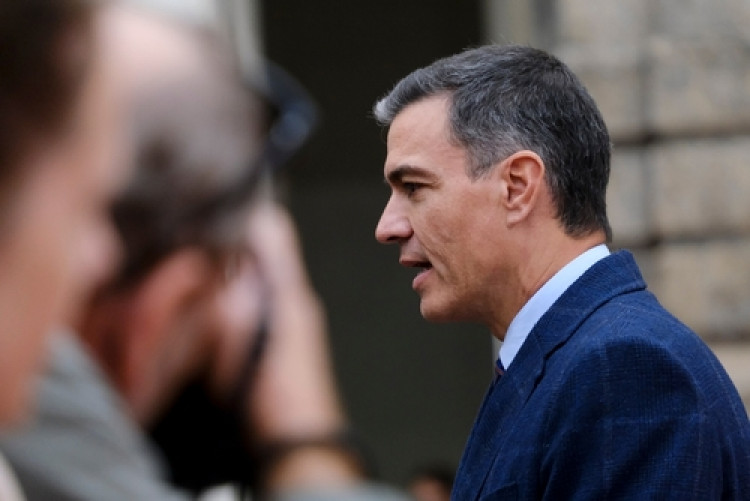The upcoming months will undoubtedly test Spain's ability to strike the delicate balance between fulfilling its Presidency of the Council of the EU responsibilities while navigating the demands of a national election.
On July 1st, Spain will step into the spotlight as it takes up the rotating Presidency of the Council of the European Union. Over the next six months, Spain will have significant influence in shaping the policy agenda through priorities outlined on June 15th by Spanish prime minister Pedro Sanchez, which revolve around four fundamental pillars:
Reindustrialising the EU and fostering open strategic autonomy
Driving ecological transition and environmental adaptation
Championing social and economic justice
Strengthening European unity
While this Presidency may seem like business as usual at first glance, two critical factors underscore its significance. Firstly, this Presidency marks the final opportunity for substantial progress on the legislative agenda before the European Parliament elections in June 2024, heightening the urgency to achieve meaningful breakthroughs during this crucial window. Secondly, Spain recently announced a national election scheduled for July 23rd, less than a month after it will take up the Presidency. Initially, Pedro Sánchez had until December 2023 to call for elections, and many anticipated he would complete his term. However, in light of the local and regional election results on May 28th, he opted to expedite the process, aiming to pre-empt a potential rise of right-wing parties.
This unexpected decision caught not only Sánchez’s cabinet members off guard but also policymakers and non-governmental stakeholders involved in EU politics. Naturally, this choice has raised numerous questions and concerns among those whose work will be directly impacted. How will the election change their priorities? What would happen to the EU Presidency if the elected Spanish Members of Parliament fail to find a consensus, leading to a governmental standby?

What will happen in Spain after the 23rd of July?
Trying to predict what will happen after the July 23rd elections, and therefore assessing the impact these results will have over the Presidency, is not an easy task. Polls coming from the public institute Sociological Research Institute (CIS) are currently predicting a win for the Socialist Party (PSOE), the party of the current president, although with a very short margin (between 0.5 and 1 points): the latest poll (as of writing) predicts 31.2% for PSOE and 30.7% for the Popular Party (PP), the conservatives. These results mean that both parties would need to form coalitions in order to form a stable government. If the coalitions follow the current configurations, with PSOE and the newly created left-wing SUMAR (a coalition of several left regional and national parties), the coalition would stand a chance of getting 45.5% of the votes. A coalition of the right-wing parties, PP and the far-right VOX, is predicted to get 41.3% of the votes.
Other polls undertaken by media channels, predict different scenarios. Earlier this month, the public news broadcaster company, RTVE, predicted that PP would get 32% of the votes, with 20% going to PSOE. However, according to RTVE, a coalition between PP and VOX is predicted to get the absolute majority.

Can the Spanish Government effectively navigate the internal political dynamics, while shielding the Presidency of the Council from potential turmoil?
Spanish policymakers have several EU files which they have declared a priority, such as the Critical Raw Materials Act and the EU Electricity Market design. Additionally, after the pandemic, health (mainly concerning member states’ competence) has become a recurrent topic in debates within the EU institutions. The Spanish Presidency will try to embed this priority within other sectors, meaning that the health impact of any new legislation will be a key consideration for discussions in the Council of the EU.
There are also some health-specific portfolios which are in the final stage of negotiations. There are high expectations for Member States to find common ground on critical issues such as the European Health Data Space (EHDS) and the Substance of Human Origin Regulation (SoHO) during Spain's presidency. The revision of the Pharmaceutical Package is also in the spotlight. In Brussels, there is scepticism about the feasibility of reaching a consensus during this Presidency, or even within the current European Parliament term, in part due to challenges like awaiting the translation of proposals. Notably, over 50 Council meetings have already been scheduled for the Working Party of Public Health and the Working Party on Pharmaceuticals and Medical Devices, underscoring the importance of these discussions.


There are differing views on the impact these elections, and the uncertainty accompanying them, will have over the Spanish Presidency. Susana Solís (Renew) said in an interview to Redacción Médica that the Presidency may take a backseat to the national elections, while Nicolás González Casares (S&D) has suggested that the officials from the Spanish Permanent Representation in the EU and from the Ministries in Madrid are prepared enough to make this a successful term. To understand this argument, it is key to highlight that when holding the Presidency, as with all countries, Spain will act as an agenda-setter and a mediator, avoiding adopting polarised positions. González was right to say that similar situations have occurred in the past, and previously, preparations already done for the Presidency helped to maintain stability in the EU, despite internal changes.
Nonetheless, it would be naïve to suggest that running elections at the very beginning of the Presidency term would not have any impact.
In conclusion, it seems clear that as Spain takes on the Presidency of the Council of the EU, upcoming national elections and potential government changes introduce uncertainties. As we wait for the results of the election, Spanish politicians are repeatedly underlining that the Spanish Permanent Representation, the office in charge of the EU work in Brussels, is stable and knowledgeable enough to surf national turmoil. Now they have the upcoming six months to prove it.






